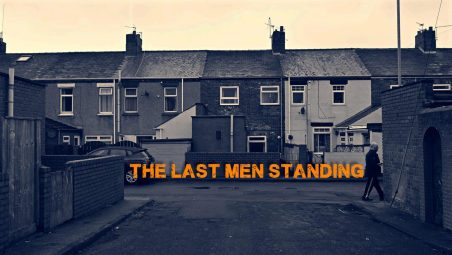The last Men Standing
Posted on 5 September 2024

The Last Men Standing is a feature length documentary by Hartlepool based filmmaker Russell Smith and Photographer Simon Hill. The film documents the lives of 15 ex-miners from the former Blackhall, Easington, and Horden collieries in the East Durham Coalfield.
The film explores the lives of the miners, their work in the collieries, the Miners’ Strike of 1984, and the ultimate decline and eventual demise of the East Durham coalfield and its communities.
When it came to the job of putting all the material together Simon asked Huw Jones (Technical Supervisor Language & Linguistic Science and Philosophy) with whom he has worked on many video projects previously, to join the project as video editor. Over a 10 week period the hours of video were compiled into the finished 75 minute feature.
The film - ‘The Last Men Standing’ - received its first screening at Cineworld in Seaham on Wednesday 3 September.
In order to be shown in a digital cinema projector TLMS had to be converted to a Digital Cinema Package (DCP). Having never made a DCP before, Huw asked advice from colleagues in the School of Arts and Creative Technologies who helped in the creation of the DCP.
Huw says “TLMS was the biggest edit I’ve ever done, the video files were over 10TB and took up almost my entire hard disk storage”
The project was shot on Nikon Z9 cameras and edited in Apple Final Cut Pro X.
Between now and early 2025 the film will feature in film festivals in the UK and USA before going on general release in mid-2025.
Speaking about the ambitions of the documentary film, Russell said: “The coal industry, along with several other heavy industries, are now no longer visible on the landscape of the North East or, perhaps, anywhere in the UK. The only true and accurate accounts we have of what powered the industrial revolution and beyond are held within the memories of the people who carried out the work. As they pass away, the stories of how their communities were built, flourished, and then declined beyond any recognition, dies with them. The next couple of decades is probably our final chance to capture the first person testimony of those who worked in mining and so many of the great British industries, and to hear of the life and the communities that made the industrial towns and villages, before they are lost forever.”
To read the BBC News article: New film tells story of final colliery workers
